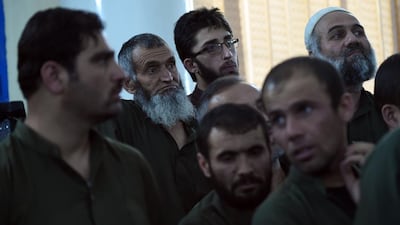The news that 49 people, including 19 police officers, have gone on trial in Afghanistan over the killing of a young woman is a step in the right direction, not only for the rule of law in Afghanistan, but for gender relations. Too often in that country, crimes against women have gone unpunished or been dealt with between families in an ad hoc and unsatisfactory way.
Initially, that appeared to be the trajectory of this case as well. The killing of Farkhunda, a 27-year old Quranic scholar, shocked both the country and the wider world. She was murdered in a frenzied attack by a mob in March, which was filmed and subsequently circulated, after she was falsely accused of burning a copy of the Quran.
But such was the brutality of the killing – and the injustice of the accusations levelled at the victim – that the Farkhunda case became a symbol of the need for change. Protests erupted across Afghanistan, with many of those protesting painting their own faces red to reflect the brutal way Farkhunda was killed. In a telling break from tradition, women’s rights activists carried her coffin to the cemetery.
The case has become a touchstone for the wider restrictions and violence against women in traditional parts of Afghan society. The police were heavily criticised for standing by and letting the mob deal with Farkhunda. Even the country’s first lady, Lebanese-born Rula Ghani, has said the case made many face “the ugliness brought on by the violence against women”.
If this really is happening and real change came about, it would be very welcome. It is especially positive that the cry for justice for Farkhunda is being led by Afghans themselves, rather than imposed by foreign NGOs. The anger has bubbled up from within Afghan society itself.
For the development to be carried forward, however, it will need to be watched and encouraged. The Afghans have started the process. They need the world’s support as they go down the path of change.

